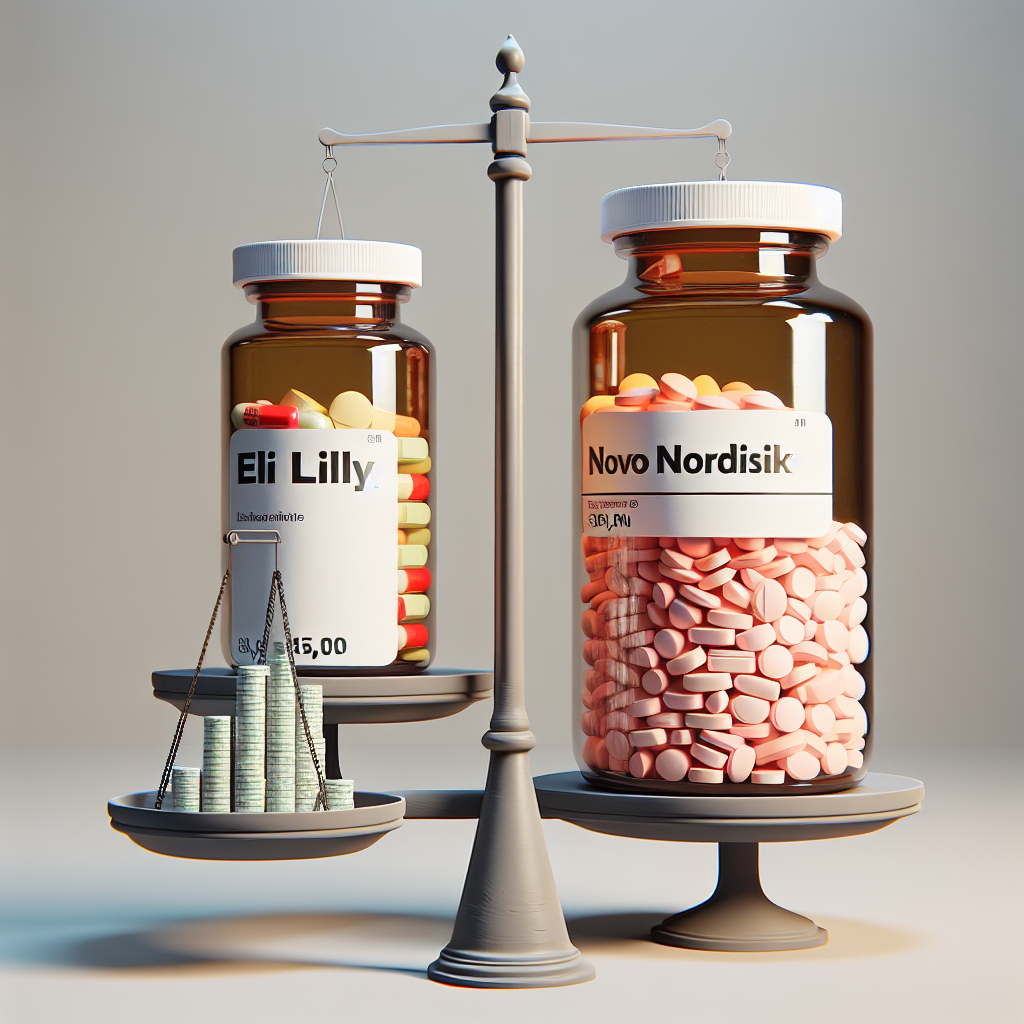Pharmaceutical Stocks Today: Eli Lilly and Novo Nordisk Gear Up Against Compounding Threats
In the dynamic world of pharmaceuticals, innovation and market exclusivity are sacred principles that drive profitability for companies. However, the landscape is shifting, especially for diabetes and obesity treatments like Eli Lilly’s Zepbound and Novo Nordisk’s Ozempic. The recent emergence of cheaper alternatives, known as compounders, has put significant pressure on both companies as they navigate the intricate balance of supply and demand.
The Current State of GLP-1 Drugs
GLP-1 medications have transformed diabetes and obesity treatment since the approval of Wegovy for obesity in 2021. Despite their success, these medications have faced supply shortages that have facilitated the rapid rise of compounding pharmacies that produce similar products at lower prices. The ongoing supply constraints have created an environment ripe for competitors to step in, undermining the exclusivity that Eli Lilly and Novo Nordisk had initially enjoyed.
FDA’s Role and Market Dynamics
The U.S. Food and Drug Administration (FDA) initially announced that Eli Lilly’s tirzepatide, the active ingredient in Zepbound and Mounjaro, was in short supply, which allowed compounding pharmacies to flourish. However, a month ago, the FDA reassessed its determinations, suggesting that the recognized shortage might have been resolved. This shift came amidst a lawsuit from a compounding trade group, underscoring the ongoing tension between big pharma and the compounding sector.
As the FDA moves to review this subject, there’s fear within the industry. Should it decide to restrict mass compounding, it would not only solidify a competitive advantage for Eli Lilly and Novo Nordisk but also impact telehealth companies like Hims & Hers Health and Ro that have capitalized on the alternative therapies. The implications could drastically reshape the healthcare landscape.
Marketing Pushes Amidst Uncertainty
Both Eli Lilly and Novo Nordisk are keenly aware of the changing market dynamics. Eli Lilly plans to ramp up its consumer-focused advertising for Mounjaro and Zepbound in the coming weeks, aiming to capture patients who have been seeking cheaper alternatives via compounding pharmacies. UBS analyst Jo Walton raised concerns about potential shortages as demand increases following these efforts. This delicate balance poses the question: Can the companies meet heightened demand without reverting to shortages?
While Eli Lilly maintains that its current and projected supply for both products exceeds national demand, it remains to be seen if this will hold true as advertising efforts intensify. A spokesperson recently emphasized that all doses of Mounjaro and Zepbound have been available since August and that expanding access and affordability via self-pay options is part of their strategy.
Insights into Demand and Supply
Scott Brunner, CEO of the Alliance for Pharmacy Compounding, suggested that the surge in demand for GLP-1s is particularly unprecedented, drawing parallels to historical shortages in the pharmaceutical industry. Beyond just filling supply gaps, businesses associated with compounding are actively marketing these drugs, further complicating the competitors’ landscape.
While Eli Lilly and Novo Nordisk argue for stringent oversight regarding the safety and efficacy of compounded medications, the truth is that they are also motivated by the need to protect their market share. With ongoing investments in expanding their production capabilities and conducting clinical trials, neither company is eager to let compounding pharmacies erode their revenues.
The Broader Implications
The FDA’s stance will be crucial for the future trajectory of GLP-1s. As it engages in an assessment of the supply situation, stakeholder anxieties run high. Even when the FDA may classify a medication as available, patients often confront delays related to supply-chain issues, complicating access further.
As the dust settles, Eli Lilly and Novo Nordisk appear positioned to regain a semblance of normalcy in their supply chains, provided they can navigate the evolving regulatory scenario and anticipated demand surge effectively. Investors in pharmaceutical stocks would be wise to keep a close eye on these developments as the companies work to establish their footing in an increasingly competitive field.
In summary, the manufacturing giants may soon get what they wish for: less competition from compounders. However, as they move to capitalize on this potential shift, they must also ensure that they are well-equipped to contend with an escalation in demand that could overwhelm their supply chains if not proactively managed.
With significant implications for the market and investment landscapes, Eli Lilly and Novo Nordisk’s upcoming strategies will be critical in shaping the future of the GLP-1 market and overall investor sentiment.
















